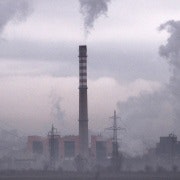Australia's Kyoto II commitment
Those working towards achieving a positive outcome from international climate change negotiations took a big sigh of relief when the Australian government announced its commitment to take on a new carbon pollution target under the Kyoto Protocol.
Less than three weeks prior to the start of the next climate summit in Doha, the move bolsters international efforts to secure a new legally binding agreement to cover all major emitters by 2015.
The climate negotiations are a complex set of moving parts. Movement in one area loosens the cogs and creates movement elsewhere. Australia is but one country, but it has influence on others in the talks.
Last year in Durban, the in-principle agreement by the EU and others to take on new commitments under Kyoto was central to securing an agreement by all major emitters to launch talks towards a new treaty covering all major emitters in 2015.
As a non-EU and large per capita emitter, Australia's participation will reduce the influence of those countries that will seek to use backsliding on participation in Kyoto as an excuse not to take on legally binding commitments themselves. Australia will enter the negotiations on a positive footing and without anti-Kyoto loadstone it dislodged in 2007 when it ratified the treaty. Kyoto participation also helps guarantee Australian business straightforward access to UN emission credits to meet their obligations under our domestic carbon laws.
Finally, the Protocol also provides a vital example of a rules-based framework crucial for a successful global agreement, which builds ambitious domestic action. Kyoto's emission trading schemes provided vital experience that has helped China and other emerging economies build the investment, skills, institutional capacity and the confidence to begin implementing carbon pricing and clean energy policies.
Australia's in-principle agreement to support a second Kyoto target (a view that has bipartisan support) does not mean that the Doha UN climate talks will not be difficult. They will be. Climate negotiations are among the most complex that the world has undertaken in recent history as they embody issues as diverse environment, trade, national security, intergenerational equity and economic development.
Doha will not deliver a new climate treaty but then again observers of the talks have often been blindsided by the symbolism treaty signings. Treaties are important but just because one was not agreed in Copenhagen, Cancun, Durban or Doha should not distract from the significant progress has been made in recent times.
Countries representing over 80 per cent of global emissions have now committed to limit or reduce their pollution. These are not hollow words or without self-interest. Countries are implementing policies to meet these targets and drive investment in clean energy and low carbon solutions. Many are seeking to maximize energy security, deliver energy productivity improvements, reduce harmful pollution levels, support regional development and develop export opportunities. Along with Australia, China and South Korea are on the path to emissions trading schemes. They join the European Union, California and New Zealand.
Taxes on carbon and/or coal, as well as renewable energy funds are in place in Japan, India and South Africa. Regulations on new power stations and vehicles are in place in the United States and Canada.
However, whilst many of these actions are significant, collectively, they remain insufficient to keep global warming to less than the UN agreed limit of 2 degrees Celsius above pre-industrial levels, let alone the 1.5 degrees Celsius guardrail that most countries have sought to be formalised in an international agreement.
Enter the Doha talks. If successful, it will put to bed questions around the future of Kyoto and focus governments on a single-track negotiation. If Doha achieves this goal, the focus of governments can be clearly aimed at finalising the post-2020 binding agreement in 2015. Doha is therefore a critical moment. If the negotiations can be coalesced then trust can be built between countries, and negotiations can be put on an equal footing in the crucial years ahead.
Erwin Jackson is the Deputy CEO of The Climate Institute.
















